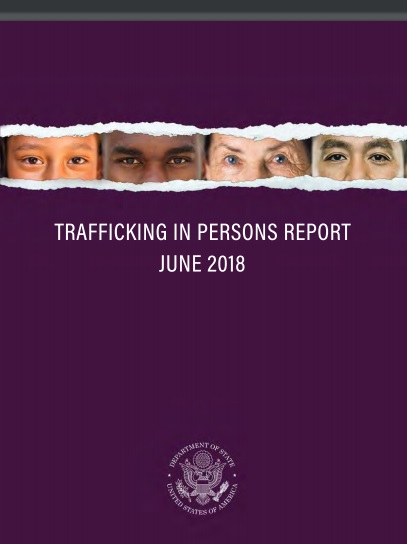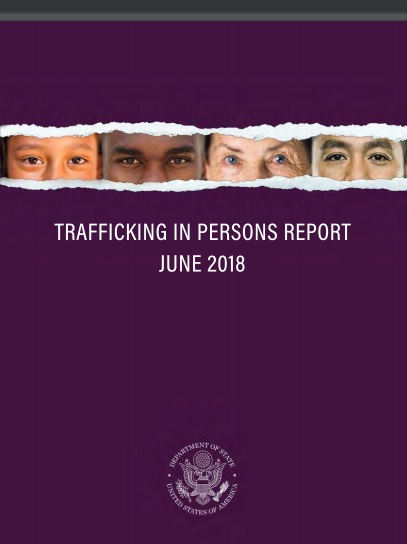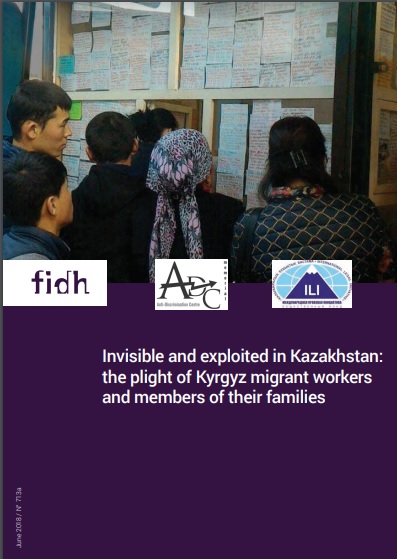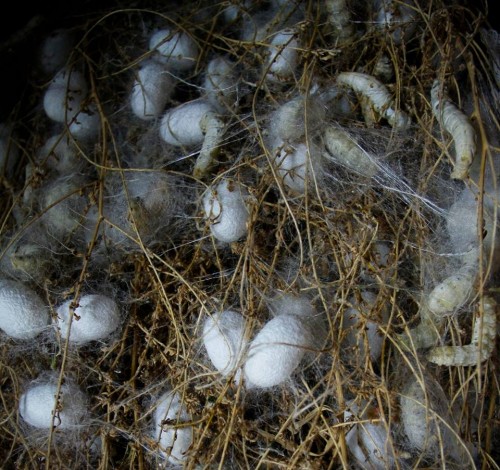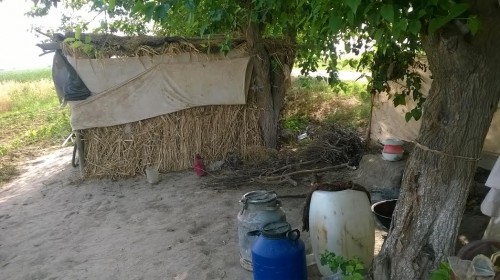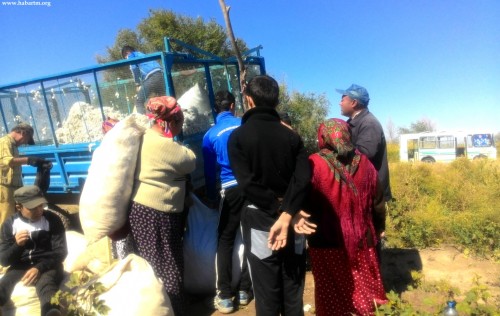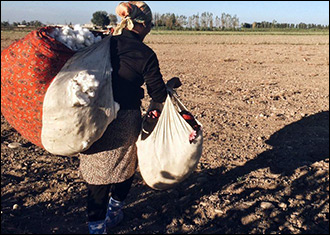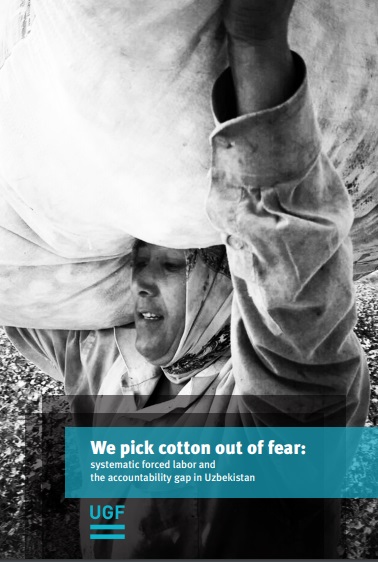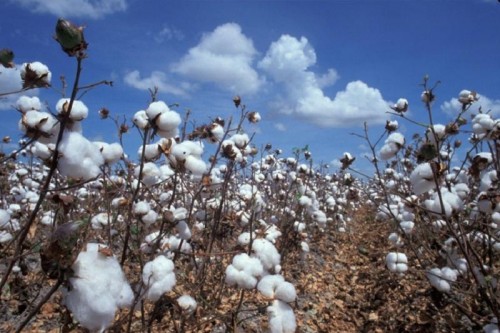Countries
Solidarity campaigns
13 August 2024
Georgia: Support striking workers at Evolution Gaming
5 June 2023
Georgia: Justice for Wolt couriers
10 May 2023
Belarus: Trade union activity is not extremism!
2 November 2019
Kazakhstan: Trade unionist Erlan Baltabay imprisoned - again!
19 November 2018
Kazakhstan: Stop repression and physical attacks on leaders of independent unions; hands off Larisa Kharkova, Erlan Baltabai and Dmitriy Senyavskiy
18 April 2018
MALOKHAT STILL NEEDS YOUR HELP
News
28 June, 2018 / turkmenistan
United States Maintains Strong Stand Against Forced Labor in Turkmenistan’s Cotton Production
The U.S. State Department announced today that the government of Turkmenistan remains in the lowest possible ranking, Tier 3, in the annual Trafficking in Persons (TIP) Report. Countries that would fall into the worst category (Tier 3), are not committed to meeting the minimum standards for the elimination of severe forms of trafficking in persons.
28 June, 2018 / uzbekistan
U.S. Decision Fails Forced Labor Victims in Uzbekistan.
Washington, DC – Today the U.S. government upgraded the Uzbek government’s ranking in its 2018 Trafficking in Persons Report to the Tier 2 Watch List, a category denoting nations that deserve special scrutiny, despite acknowledging that “government-compelled forced labor remained during the 2017 cotton harvest.” The Cotton Campaign believes that the 2017 harvest should have been the primary basis of the determination and that given the massive scale of the forced labor in last year’s harvest, the decision does not sufficiently reflect these most recent facts on the ground. Moreover, the Cotton Campaign is concerned that the decision to upgrade Uzbekistan, may prematurely diminish the government’s incentive to translate its recent commitments into action to end systematic forced labor.
27 June, 2018 / International
Invisible and exploited in Kazakhstan: New Report Sheds Light on the Plight of Kyrgyz Migrant Workers and Their Family Members
Hundreds of thousands of men, women and children from Kyrgyzstan and neighbouring Central Asian states are forced to migrate to Kazakhstan in search of work. These individuals often fall victim to forced labour, unsafe and unsanitary working conditions, violations of the rights to maternity and childhood, as well as arbitrary arrests and deportations. FIDH and its partners have documented the plight of Kyrgyz migrants, in a report released today.
26 June, 2018 / uzbekistan
Uzbek Farmer: I would be glad to refuse to grow cocoons
Uzbekistan, a leading producer of silk cocoons, relies on forced labor for their production, which violates the rights of farmers and public-sector workers and exploits the vulnerability of the rural poor. Uzbek farmers must produce silk cocoons under coercion to fulfill government quotas and they must sell their cocoons to the government at the official procurement price, leaving them little or no profit, and in many cases in debt
20 June, 2018 / uzbekistan
Uzbek Farmer: “I will definitely be bankrupt this year”
A monitor from Uzbek-German Forum interviewed a farmer from the Khorezm region who described his experience with the command system of management in the Uzbekistan’s agriculture sector. Farmers do not have the freedom to choose what crops to grow; the state sets the prices and can arbitrarily and punitively “redistribute” the land of the farm at any time, despite an existing lease, leaving farmers in a particularly vulnerable situation.
20 June, 2018 / turkmenistan
The Price for Turkmen Cotton Is Too High
Turkmenistan may represent only 2% of the world’s cotton exports, but the rampant human rights violations in their cotton production demand our attention. Much of the country’s cotton is produced using a system of state-sponsored forced labor. This isn’t widely known, but Turkmenistan can’t fly under the radar and deliver goods produced with numerous human rights violations.
17 June, 2018 / uzbekistan
Ordered To Grow Red-Hot Chili Peppers, Uzbek Farmers May As Well Give 'Em Away Now
Farmers in Uzbekistan's tightly controlled agriculture sector have been ordered by state authorities to grow cotton since the waning days of the Soviet Union. But this year, under an order from President Shavkat Mirziyoev, some are now cultivating a crop they've never grown before -- red-hot chili peppers. Reluctant new chili-pepper farmers in Uzbekistan's southern Qashqadaryo region say they've been forced into a potentially crippling situation. That's because regional officials have not signed a contract to sell their harvests through ChiliUz, a new state firm set up to facilitate the government's chili-pepper decree.One 47-year-old farmer in the region's Shahrisabz district, who asked not to be named because he feared "retaliation" from authorities for speaking out about the problem, says he and other chili-pepper farmers have also been ordered by district officials to find foreign buyers for their harvests.
31 May, 2018 / uzbekistan
Cotton Campaign presents recommendations to end forced labor to government officials in Uzbekistan.
A first-ever delegation representing the Cotton Campaign presented recommendations on how to end systematic forced labor in the cotton sector to senior Uzbek government officials on its visit to Tashkent from May 10-16, 2018. The delegation also consulted independently with civil society activists, farmers and representatives of international agencies and ambassadors of other interested governments at this hopeful time for reform in Uzbekistan.
28 May, 2018 / uzbekistan
Report: We pick cotton out of fear: systematic forced labor and the accountability gap in Uzbekistan
The 96-page report, “‘We Pick Cotton Out of Fear’: Systematic Forced Labor and the Accountability Gap in Uzbekistan,” details how the government forced education and medical workers, other public sector employees, private sector workers, people receiving benefits, and some college and university students to pick cotton involuntarily.
24 May, 2018 / turkmenistan

